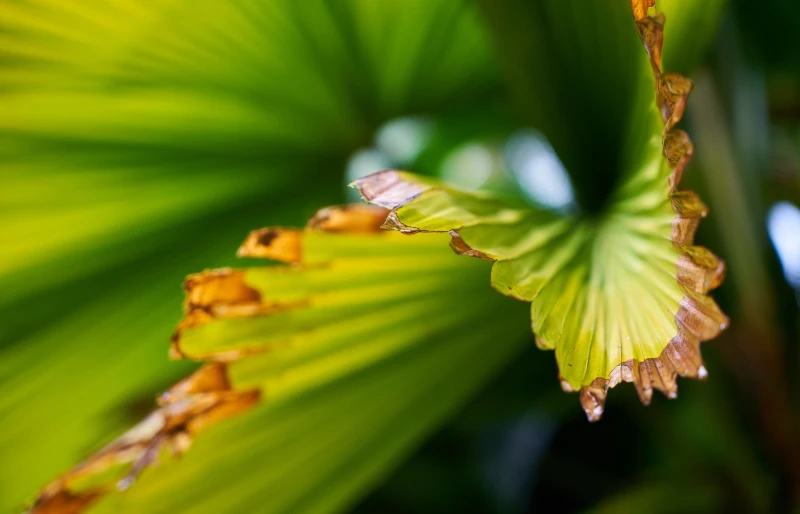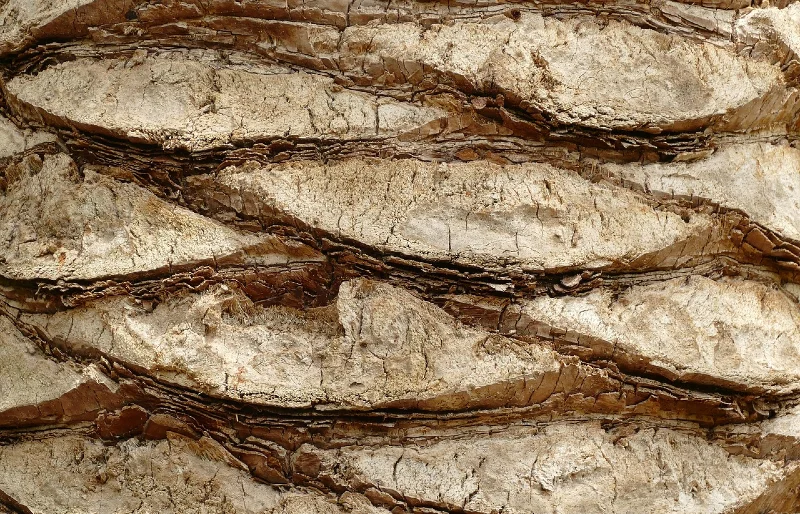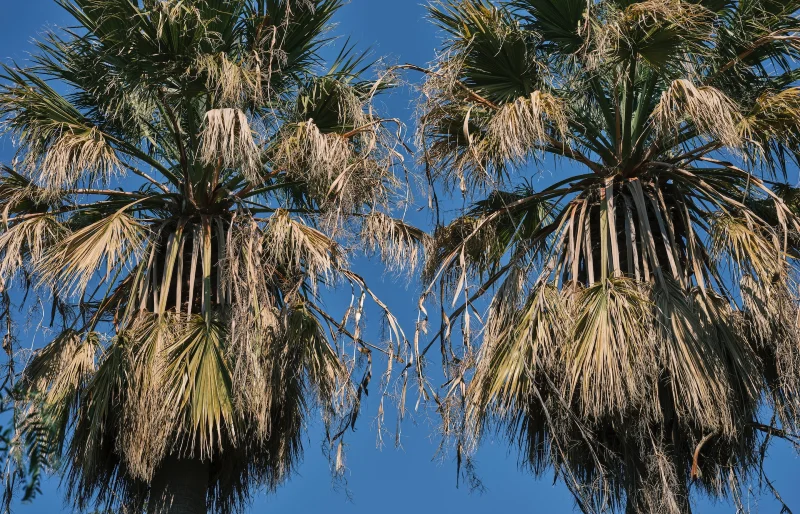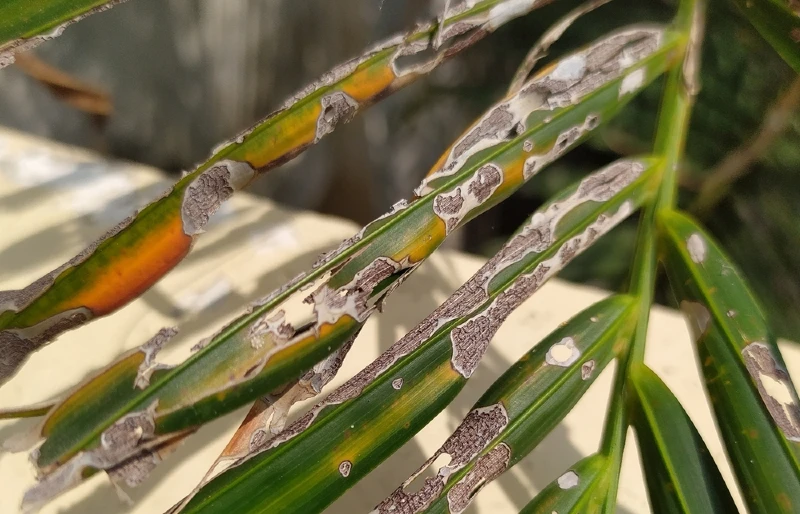How To Tell If A Palm Tree Is Dead (5 Signs To Look For)
-
Jana Blagojevic
- Last updated:

Palms are lovely plants that reward us with a powerful and eccentric appearance throughout the year. While maintaining a palm tree is easy, the tree may become neglected over time and begin dying. Understanding the clear signs of a dying palm tree is vital before attempting to revive it. In the article below, you’ll find the most helpful information on the crucial signs of a dead palm tree and what to do to nurture it back to life.
How to Tell if a Palm Tree Is Dead (5 Signs)
1. Discolored Leaves

The color of the palm’s leaves can tell you a lot about the plant’s health. Any signs of color changes or discoloration can be a significant symptom of an underlying issue that may kill your plant. The leaves need to be bright green from the base to the tips, and any browning or yellowing across the surface can mean something wrong with your palm tree.
Be on the lookout for any color changes and leaves curling or drying at the tips. Regularly inspect each leaf of your palm to prevent any problems from occurring. It is entirely normal for plant leaves to turn brown and fall off, but when more than two or three leaves are brown and crispy, it can mean that your plant is dying.
2. Brown Bark

If you suspect your palm tree is dead, there is a small test you can run to check its health. With your nail or a small pocketknife, scratch the surface of the palm’s bark, enough to scrape off a small piece of the outermost layer. You will reveal a layer of the bark called the cambium. Its tissue is meant to be bright green when the plant is alive and healthy; if it’s dead, the tissue will be brown.
Since there can be several dead leaves on a healthy plant, this test will show you the best and most reliable results.
3. Wilting Foliage

One of the most evident, visible signs that your tree is dead is wilting leaves. If its leaves become droopy, limp, or hang lifeless toward the ground, the plant is probably suffering and is not doing well. Droopy leaves do not necessarily mean your palm is dead. Sometimes, a good watering can help perk up the leaves again.
However, if the leaves continue wilting even when you provide your palm with regular watering, it probably means the roots cannot absorb water, and the tree is dead.
4. Pest Infestation

Palms trees are common hosts for insects, such as caterpillars, bugs, and mites, that might suck the nutrients from your plant. Examining your palm tree as frequently as possible and noticing any signs of pests at the start is crucial. If these pests go unnoticed, they can quickly suck all the nutrients from your palm tree, causing it to die. Sometimes the appearance of pests can be a symptom of an underlying issue, such as root rot. You can save your palm tree from dying if you check all the sections of the plant regularly, such as the soil’s pH levels, the health of the palm’s bark, and its leaves.
5. Leaf Loss

If you’ve noticed the leaves of your palm wilting, it won’t be long before they begin to fall to the ground. If a plant has significant leaf loss over a short period, it can be a clear sign of dying. This can sometimes be the sign of new growth on top, although if you notice thinning leaves and no new growth, make sure to try your best to save your palm tree before it’s too late.
If you leave the first problem unchecked and unnoticed and allow your palm tree to lose leaves, it might be too late to nurture it back to health.
How to Save a Palm Tree From Dying
If you are looking to revive a palm tree, there are some things you can try to do, but brace yourself for a challenging task. You can commonly see disregarded palm trees near the road or in areas with frequent hurricanes, or you may have even neglected a plant in your backyard. Depending on the level of damage or negligence the plant endured, nurturing it back to life will require expert knowledge or assistance.
If the leaves have been injured in winter, wait until spring to prune dead leaves. If you notice new growth after winter, there is still some hope to revive your plant. Dead foliage can help the rest of the plant survive a rough winter. In spring, use a palm fertilizer and water the plant thoroughly.
The most important advice is to remain patient and hopeful. With special care and treatment, you can slowly help your palm regain its strength and gradually improve its health.
Conclusion
Once you’ve learned all the crucial signs of a dead palm tree, you can examine your own plant. Even if you notice some signs, it might not mean your tree is dying but simply preparing for the winter or showing signs of distress. Make sure to water your palm as suggested, maintain an ideal soil type and pH levels, and look out for any signs of pests; your tree should be healthy and strong for a long time.
Featured Image Credit: Lesli Whitecotton, Pexels
Contents
